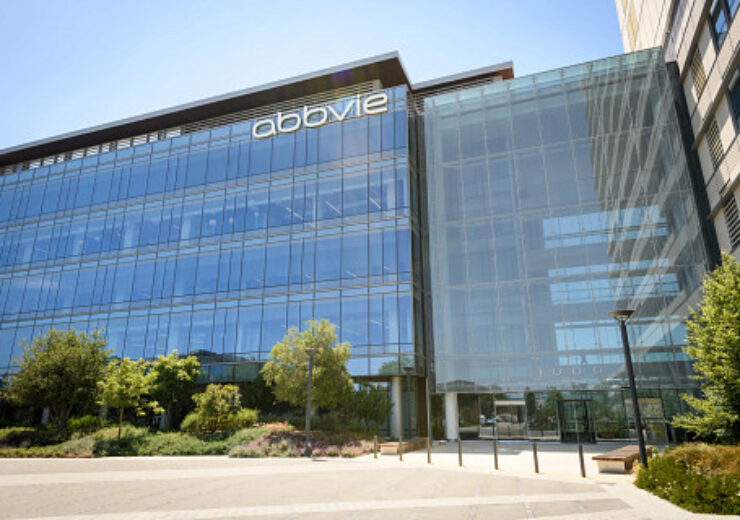Topline results from the follicular lymphoma cohort demonstrated an ORR of 82%, which surpassed the protocol prespecified threshold set for efficacy

AbbVie and Genmab plan to engage global regulatory bodies to discuss next steps for epcoritamab based on the EPCORE NHL-1 results. (Credit: AbbVie Inc.)
AbbVie and Genmab said that their jointly developed epcoritamab (DuoBody-CD3xCD20) has shown positive results in a Phase 1/2 trial in patients having relapsed/refractory (R/R) follicular lymphoma (FL).
The companies have released topline results from the follicular lymphoma (FL) cohort of the Phase 1/2 clinical trial dubbed EPCORE NHL-1.
The study cohort has 128 adults with R/R follicular lymphoma who were given not less than two or more lines of systemic therapy.
In the open-label trial, the safety and preliminary efficacy of the investigational T-cell engaging bispecific antibody was evaluated. It consists of three parts, which are a Phase 1 first-in-human, dose escalation part followed by a Phase 2a expansion part, and eventually a Phase 2a optimisation part.
According to AbbVie, topline results from the follicular lymphoma cohort demonstrated an overall response rate (ORR) of 82%. Confirmed by an independent review committee (IRC), the recorded ORR surpassed the protocol prespecified threshold set for efficacy.
The observed median duration of response (DOR) was not achieved though and further follow-up will be needed, said AbbVie.
The company revealed that the median number of lines of prior therapy in the cohort was three, ranging from two to four lines of treatment.
AbbVie vice president and haematology therapeutic area head Mariana Cota Stirner said: “We are encouraged by these topline results, which further support the clinical profile of epcoritamab as a potential therapeutic option for patients with relapsed or refractory follicular lymphoma.
“Together with our partner Genmab, these results may bring us one step closer to our goal of advancing a potential core therapy for patients with B-cell malignancies.”
Epcoritamab is intended to be subcutaneously administered.
In the EPCORE NHL-1 study, the investigational T-cell engaging bispecific antibody did not show any new safety concerns at the time of analysis. The most frequently observed treatment-related adverse event was cytokine release syndrome (CRS), affecting 66.4% of participants, with only 1.6% experiencing Grade 3 or higher.
As part of ongoing efforts to minimise the risk of cytokine release syndrome, the trial continues to assess alternative step-up dosing plans, said AbbVie.
Based on the findings of the clinical trial, AbbVie and Genmab will engage global regulatory bodies to discuss next steps for epcoritamab.
